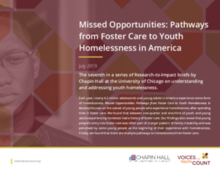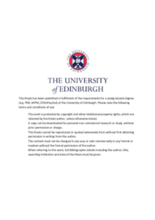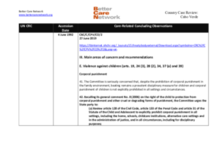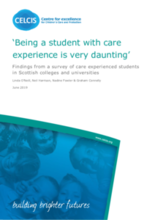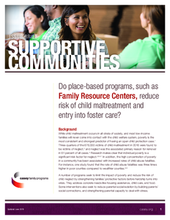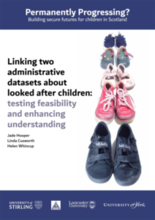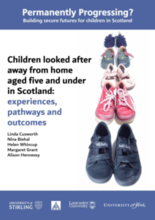Displaying 781 - 790 of 2221
This Research-to-Impact brief is the seventh in a series of briefs that presents key findings from Voices of Youth Count. It elevates the voices of young people whose pathways into homelessness included time in foster care and points to opportunities for prevention and intervention.
This thesis paper explores (1) how children in care in the UK are making use of mobile communication devices for contact with members of their familial and friendship networks; (2) to what extent devices like the smartphone, tablets and computers either improve or hinder communication; and (3) how contact using mobile communication devices and Internet is being managed by foster carers and social workers.
This open access systematic review aimed to appraise the extant research evidence from longitudinal studies and answer the question: how do educational outcomes differ between children in contact with Children’s Social Care (CSC) and the general population in the UK?
This country care review includes the care-related Concluding Observations adopted by the Committee on the Rights of the Child.
This article elucidates the challenges parents face when they lose the care of their children and their experiences of family counselling as a support service in Norway.
The research presented in this report aimed to broaden and deepen understanding of the barriers and enablers that care experienced students encounter in going to, being at and staying at college and university in Scotland.
This issue brief describes family resource centers, their defining characteristics, and what is known about their effectiveness in reducing child welfare involvement. The brief also discusses return on investment and what is missing from the research literature.
This report on the linkage of Children Looked After Statistics (CLAS) with data from Scottish Children’s Reporter Administration (SCRA) is one strand of the Permanently Progressing? study. The study is the first in Scotland to investigate decision making, permanence, progress, outcomes and belonging for children who became ‘looked after’ at home, or away from home (with kinship carers, foster carers or prospective adopters) when they were aged five and under.
After almost five years of detailed research and analysis, the reports of the Permanently Progressing study (phase one) were published on 20 June 2019. The study investigated decision making, permanence, progress, outcomes and belonging for a large cohort (1,836 children) of all children in Scotland who became looked after in 2012-13, when they were aged five or under.
The aim of this particular strand of the Permanently Progressing? study was to investigate the experiences, pathways, and outcomes of children who became looked after away from home, together with the factors associated with achieving permanence.

